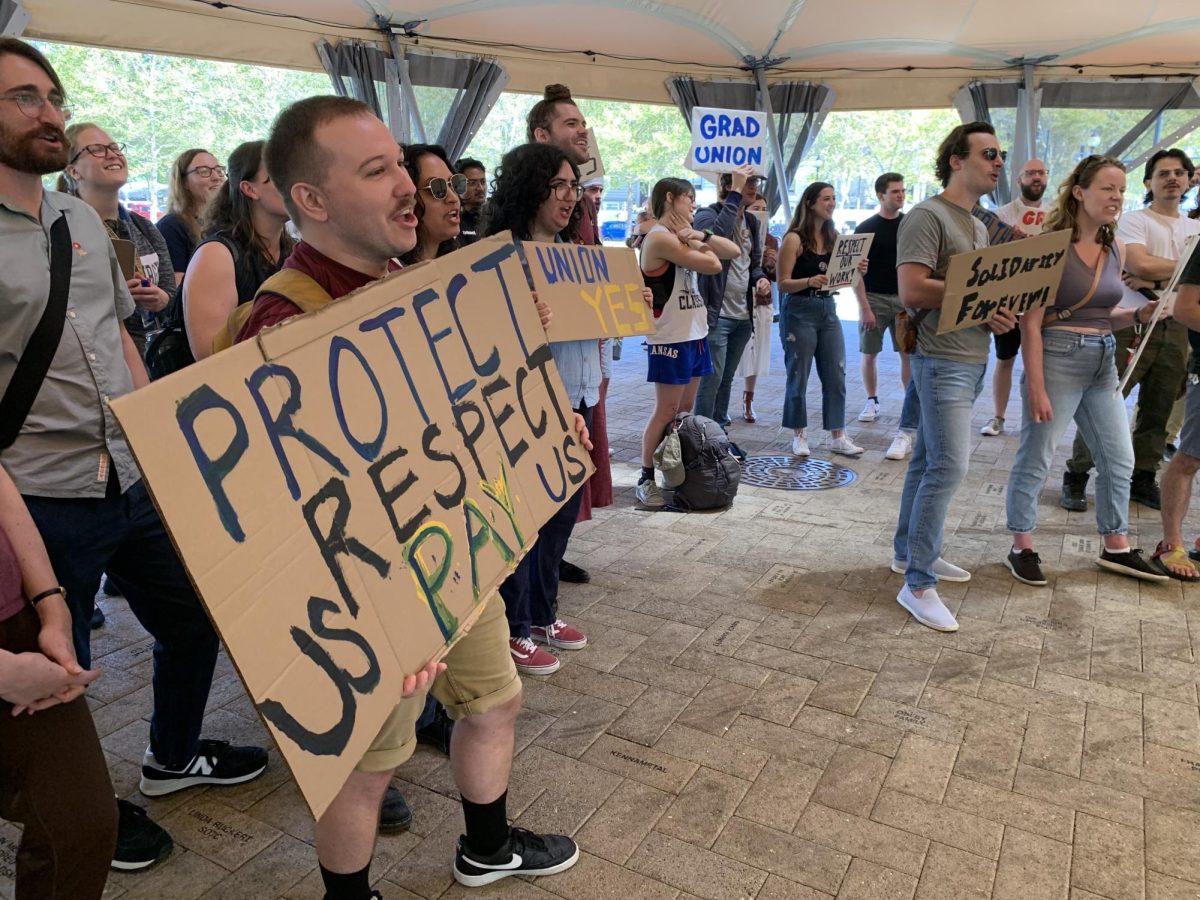Organizers for a graduate workers union at Pitt began collecting authorization cards on Monday, a way of gauging support that could trigger an official vote on unionization.
The move comes after Pitt announced a substantial downgrade to health insurance for graduate workers with academic appointments in August.
“By signing your union card today, you tell the Pitt administration that they cannot make any more changes to our working conditions without consulting us first,” Alison Mahoney, a fourth-year theater arts graduate student, said.
Among the changes, enrollees in the plan lost fully-covered hospital stays and must pay a $250 individual deductible, up from zero. Copays have spiked as well — in some cases from $5 to $30. The University contends that the new medical plan, which combines the two plans offered last year, will help tamp down cost hikes in the long term.
“As healthcare costs continue to escalate, by combining both undergraduate and graduate student health insurance plans and pools, we will be empowered to negotiate in such a way as to help us offer more affordable plans to all students in the future,” Pitt spokesperson Nick France previously told The Pitt News.
Pat Healy, a fifth-year information sciences graduate student and teaching fellow, characterized the card campaign kickoff in the Cathedral of Learning as partly a response to the new medical plan.
“I think the energy we’ve seen over the past couple of months, especially after these health insurance changes, it’s the most angry I’ve seen people in my eight-and-a-half years at Pitt,” Healy, who also attended the University as an undergraduate, said.
But Healy knows better than most this escalation was preceded by years of painstaking work to build one-on-one connections. They first joined the organizing committee in May 2019, one month after graduate workers rejected unionization by a margin of 39 votes.
“It’s very likely that this card campaign would have happened anyway had those health insurance changes not happened,” Healy.
Pitt did not immediately respond to a request for comment on this new phase of the union drive.
Organizers will need to submit signed cards to the Pennsylvania Labor Relations Board from at least 30% of roughly 2,000 eligible workers to begin the election process.
If graduate workers eventually came down in favor of unionization, they would join United Steelworkers, which represents faculty in their negotiations for a first contract with administration and recently helped staff union organizers trigger their own vote. The exact details of the staff union election have yet to be determined.
Healy viewed the card campaign kickoff, which attracted around 100 supporters, as a strong start.
“You’re going to be seeing us around with cards for a little while here,” Healy said. “But obviously, this is a fantastic turnout.”
Graduate workers’ grievances go beyond healthcare, though it appeared as the most salient issue at a rally in Schenley Plaza that followed the card signing event. Several union supporters also cited meager stipends and poor working conditions as reasons to ditch shared governance.
“My experience at Pitt has been precarious, dehumanizing, ableist and sexist, but I’m still here, and so are my union siblings,” ninth-year anthropology graduate student Anika Jugovic-Spajic said. “Let’s channel our anger, frustration, sadness, fear into solidarity, and into getting our union.”


